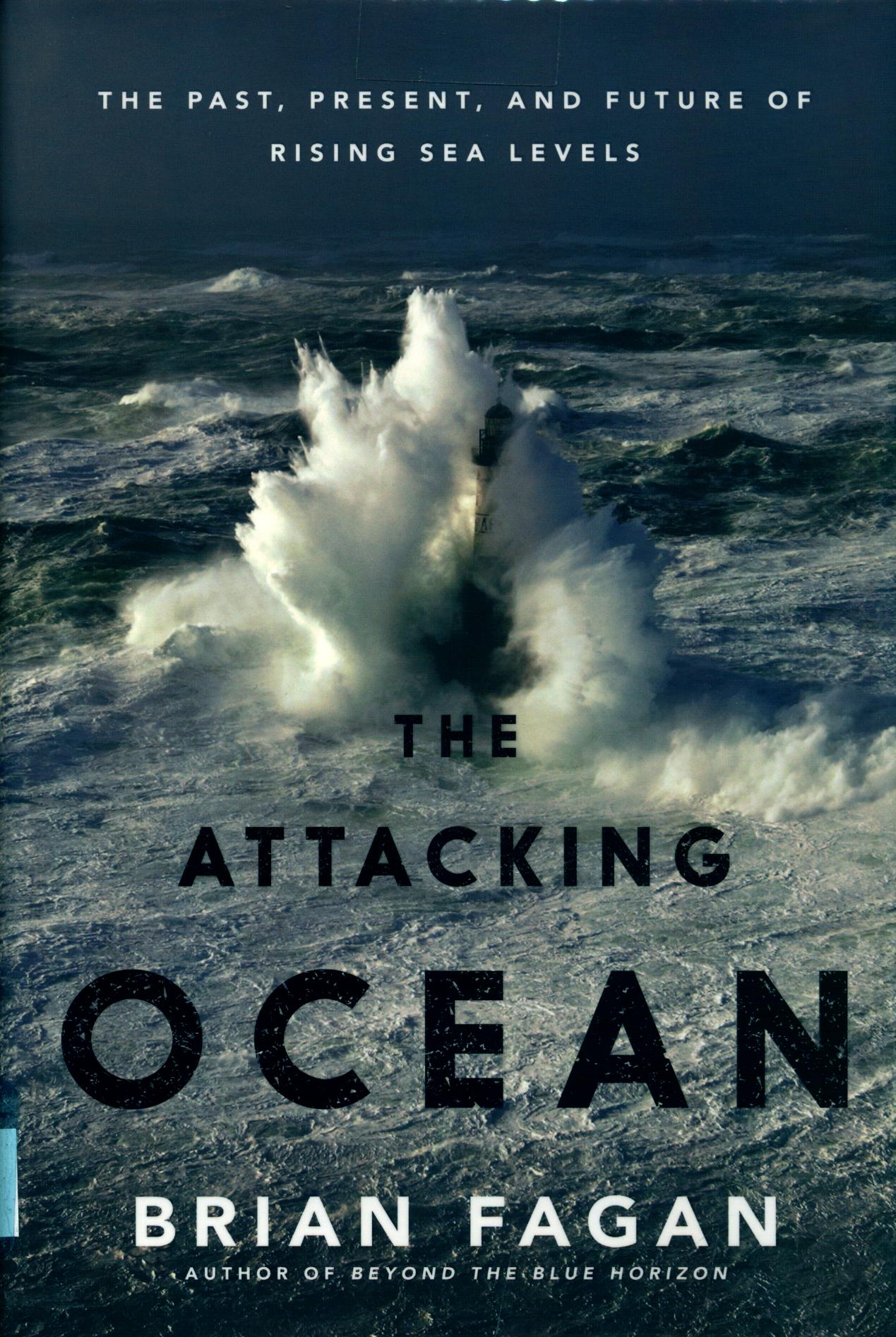
The Attacking Ocean:
The Past, Present, and Future of Rising Sea Levels
by Brian Fagan
GC89 .F35 2013
New Arrivals, 2nd floor
I’ll admit that what drew me to this week’s book was simply the picture on the cover. I’d love to be somewhere just watching the waves crash, over and over and over. Unfortunately, the subject matter of this book is not as relaxing as the cover photo might seem.
The Attacking Ocean discusses the history of global sea levels, beginning thousands of years B.C.E., the changes over the years, and its effects on countries, cities, and people. Many storms and floods that have occurred during these years are mentioned. Global warming and its effects are also discussed. Fagan cites some sobering statistics, such as “If current rates of greenhouse gas emissions continue, global temperatures will rise to an average of thirteen degrees Celsius warmer than today by 2100….[T]his would lock us into at least 4 to 6 meters of sea level rise in subsequent centuries, as parts of the Greenland and Antarctic ice sheets dissolve. With an almost 3-meter rise, nine large cities, including Boston and New York, will have lost 10 percent of their current land areas. With a near 6-meter rise, about a third of the land area within US coastal cities will have vanished” (p. 228). Some of those politicians who don’t believe in global warming might want to read this book for a reality check.
What I don’t like about this book is that I found no fewer than 9 footnotes referencing Wikipedia. Most of his other sources–based on what I could see in the citations–seem credible, although I question strongly whether “factsanddetails.com” is the best place to find a quote from the Washington Post (footnote 6, p. 134), given that the website doesn’t list any other source details other than to claim the quote in question was from the Washington Post. I know, because I checked the website myself. The author of The Attacking Ocean, Brian Fagan, is an emeritus professor of anthropology at the University of California-Santa Barbara. I wonder if he’d accept these types of sources from one of his students?
